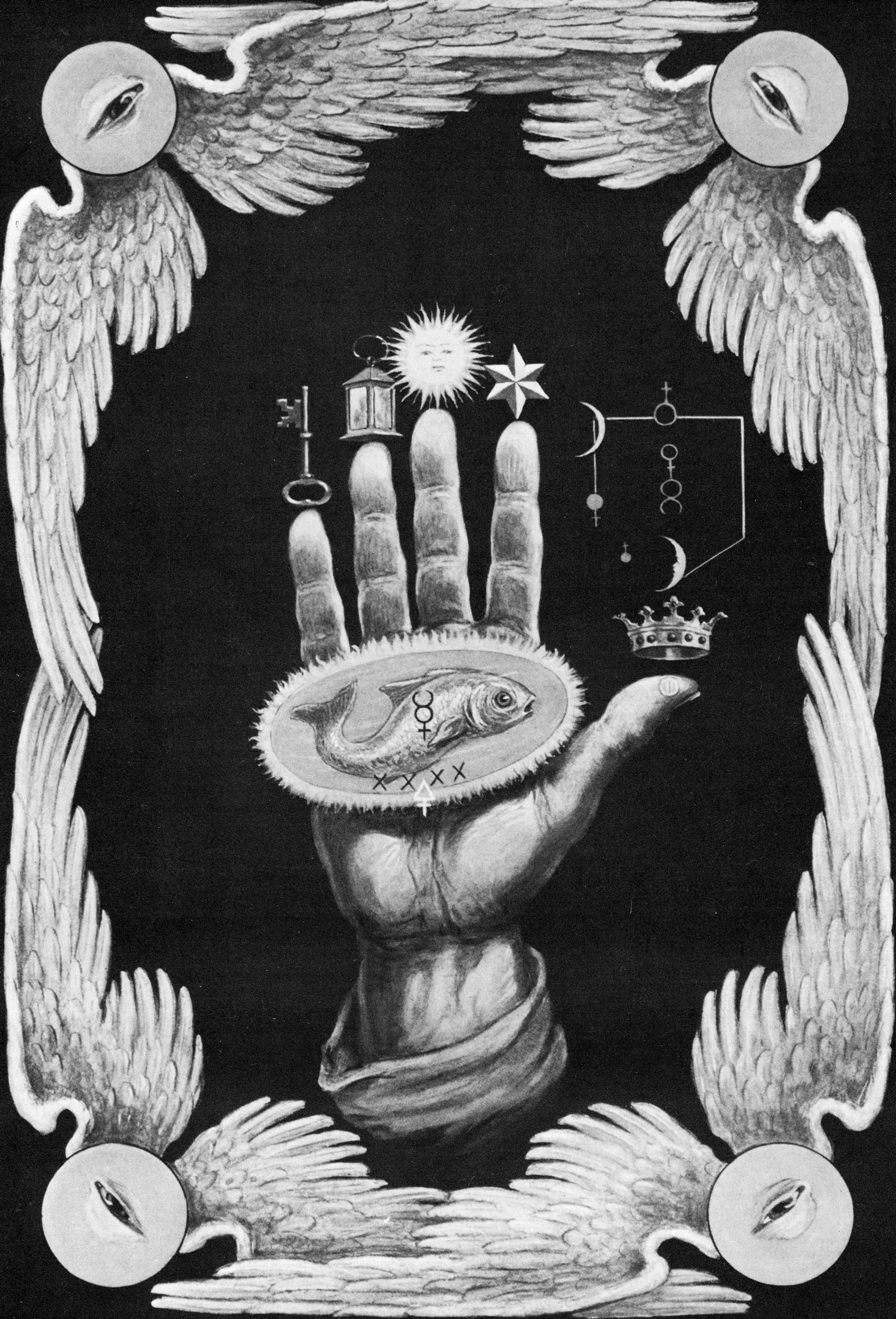
Western Esoteric Art
The best truth is secret truth
1690 – 1947IT is necessary, in this place, to speak of the antipathies of natural things, seeing it is requisite, as we go on, to have a thorough knowledge of that obstinate contrariety of Nature, where any thing shuns its contrary, and drives it, as it were, out of its presence. Such antipathy as this has the root rhubarb against choler; treacle against poison; the sapphire stone against hot biles, feverish heats, and diseases of the eyes; the amethyst against drunkenness; the jasper against the bloody-flux and offensive imaginations; the emerald, and agnus castus against lust; achates or agates against poison; piony against the falling sickness; coral against the ebullition of black choler, and pains of the stomach; the topaz against spiritual heats, such as are covetousness, lust, and all manner of love excesses. The same antipathy is there, also, of pismires against the herb organ, and the wing of a bat, and the heart of a lapwing, from the presence of which they fly. Also, the organ is contrary to a certain poisonous fly which cannot resist the sun, and resists salamanders, and loaths cabbage with such a deadly hatred that they cannot endure each other. So they say cucumbers hate oil. And the gall of a crow makes even men fearful, and drives them from the place wherein it is placed. A diamond disagrees with a loadstone; that being present, it suffers no iron to be drawn to it. Sheep avoid frog-parsley as a deadly thing; and, what is more wonderful, Nature hath depictured the sign of this antipathy upon the livers of sheep, in which the very figure of frog-parsley doth naturally appear. Again, goats hate garden-basil, as if there was nothing more pernicious. And, amongst animals, mice and weasels disagree; so a lizard is of a contrary nature to a scorpion, and induces great terror to the scorpion with its very sight, and they are therefore killed with the oil of them; which oil will likewise cure the wounds made by scorpions. There is a great enmity between scorpions and mice; therefore if a mouse be applied to the bite of a scorpion, he cures it. Nothing is so much an enemy to snakes as crabs; and if swine be hurt by them, they are cured by crabs; the sun, also being in Cancer, serpents are tormented. Also, the scorpion and crocodile kill one another; and if the bird ibis does but touch a crocodile with one of his feathers, he makes him unmoveable. The bird called a bustard flies away at the sight of a horse; and a hart at the sight of a ram, or a viper. An elephant trembles at the hearing of the grunting of a hog; so doth a lion at the crowing of a cock; and a panther will not touch them that are anointed with the fat of a hen, especially if garlick has been put into it. There is also an enmity between foxes and swans; bulls and jackdaws. And some birds are at a perpetual variance, as daws and owls; kites and crows; turtle and ring-tail; egepis and eagles; also, harts and dragons. Amongst water animals, there is a great antipathy between dolphins and whirlpools; the mullet and pike; lamprey and conger; pourcontrel and lobster, which latter, but seeing the former, is nearly struck dead with fear; but the lobster tears the conger. The civet-cat cannot resist the panther; and if the skins of both be hung up against each other, the skin or hairs of the panther will fall off. Apollo says, in his hieroglyphics, if any one be girt about with the skin of a civet-cat, he may pass safe through his enemies. The lamb flies from the wolf; and if the tall, skin, or head of lupus be hung up in the sheeps'-cot, they cannot eat their meat for very fear. And Pliny mentions the bird called the marlin, that breaks the eggs of the crow, whose young are annoyed by the fox; that she also will pinch the whelps of the fox, and the fox likewise, which, when the crow sees, they help the fox against her as against a common enemy. The linnet lives in, and cats thistles; yet she hates the ass, because he cats the thistles and flowers of them. There is so great an enmity between the little bird called esalon and the ass, that their blood will not mix; and that, at the simple braying of the ass, both the esalon’s eggs and young perish together. There is, also, a total antipathy of the olive-tree to the harlot; that, if she plant it, it will neither thrive nor prosper, but wither. A lion fears lighted torches, and is tamed by nothing sooner. The wolf fears not sword or spear, but a stone; by the throwing of which a wound being made, worms breed in the wolf. A horse fears a camel so much that he cannot endure the picture of that beast. An elephant, when he rages, is quieted by seeing a cock. A snake is afraid of a naked man, but pursues one clothed. A mad bull is tamed by being tied to a fig-tree. Amber attracts all things to it but garden-basil, and things smeared with oil, between which there is a natural antipathy.